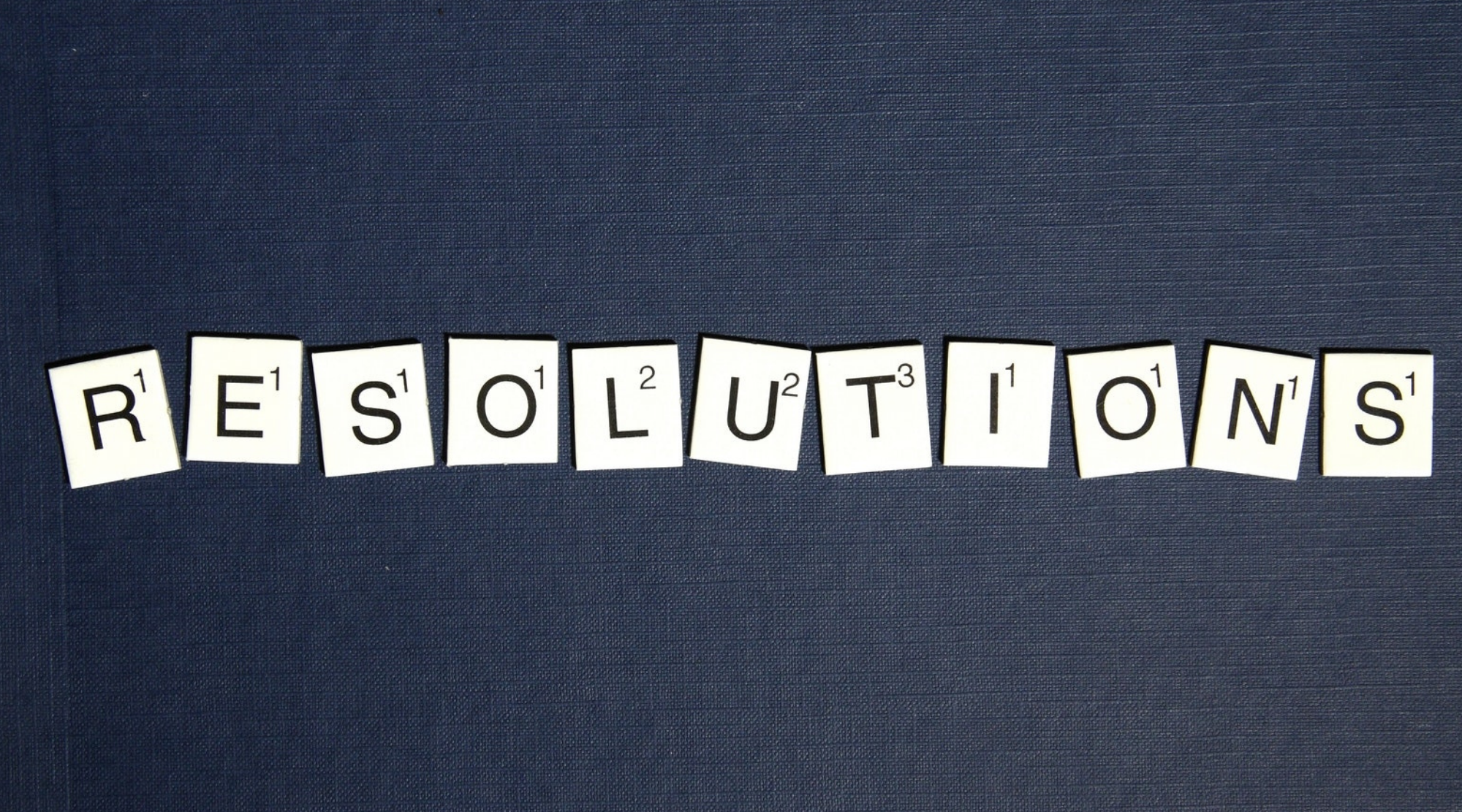AAALetter - June 2021
Volume 33, Number 1
Table of Contents
1. Letter from the Editor by Dr. Stephanie Link, AAALetter Editor
2. Living, Learning, & Longing after AAAL 2021! by Dr. Patricia Duff, AAAL President
3. After Three Years, Join us in Pittsburgh in Person by Dr. Lourdes Ortega, AAAL 1st VP
4. Diversity, Equity, Inclusion, and Access (DEIA) by Dr. Fabiola Ehlers-Zavala, AAAL Secretary
5. AAAL's Finances and Membership by Dr. Scott Jarvis, AAAL Treasurer
9. Conference Connections 2021 Mentoring: A Year of Growth by Dr. Bethany Gray, Conference Connections Committee Chair
10. Building Forward Momentum by Laxmi Prasad Ojha and Svetlana Koltovskaia, GSC Co-Chairs
12. AILA 2021 World Congress by Dr. Fabiola Ehlers-Zavala, AAAL Secretary
14. Dr. Julie Sykes: New Member Spotlight
15. AAAL Resolutions by the AAAL Main Office
Letter from the Editor
Stephanie Link, Oklahoma State University
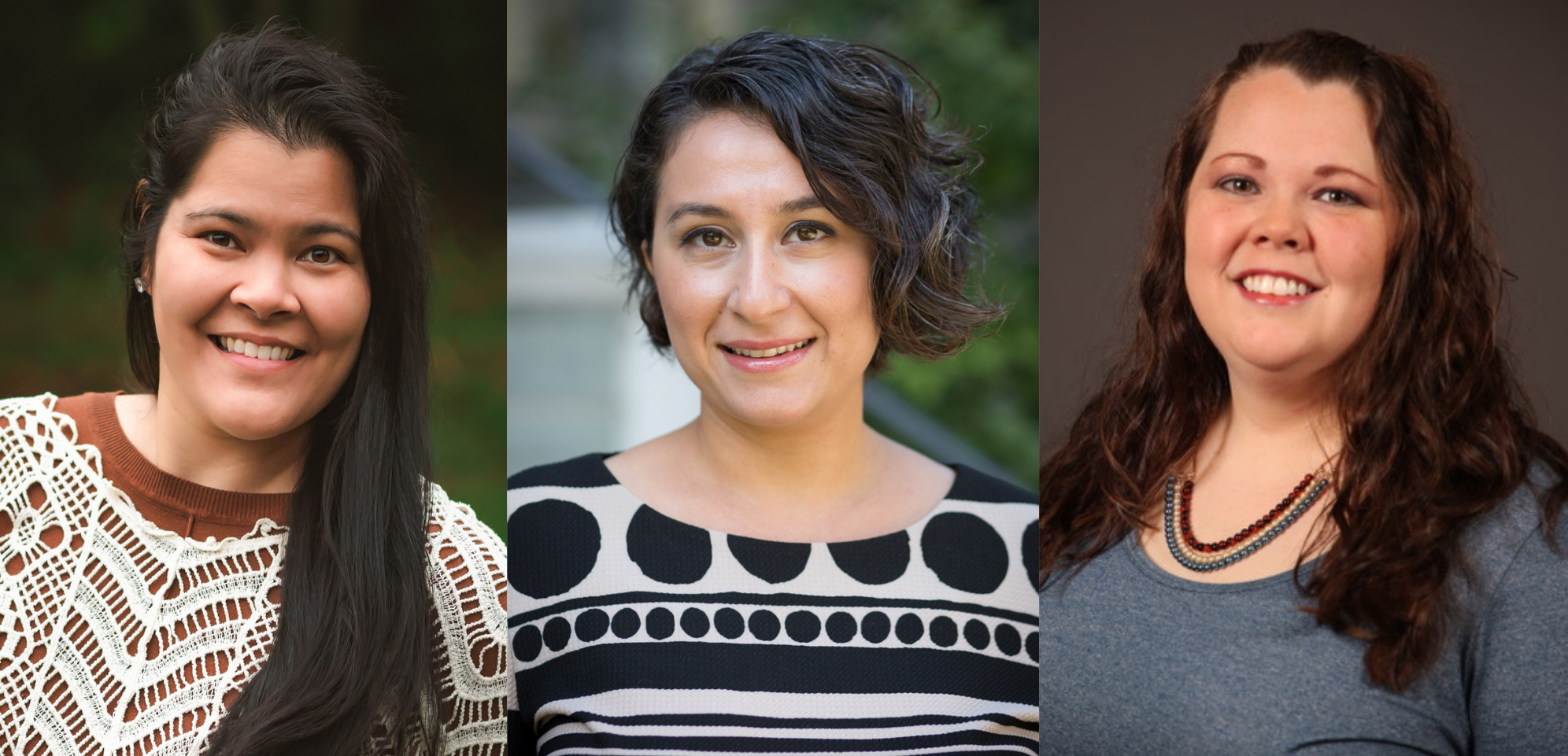
Welcome to the first issue of the 2021 AAALetter!
As we jumpstart a new year, we are reminded of all the progress the Association has made to lift spirits amidst a global pandemic and to uplift each other through struggles of social and racial injustices. The past has challenged our members and leadership in many ways. Today, these challenges continue, but our membership has helped to find new means of coming together to increase community efforts and interactions. We have witnessed these changes through the diligence of the executive committee and AAAL standing/steering committees, each of which highlight their latest and continuing initiatives in this issue of the AAALetter.
This issue starts with updates from our AAAL executive board members:
- President—Patsy Duff is graciously rising up to the President role after a demanding year as Chair of AAAL’s first-ever virtual conference in March 2021. Read about what is in store for the Association this year!
- First Vice President and Conference Chair—Lourdes Ortega brings us back into some level of what life was like pre-pandemic. Read about the exciting news for our next conference in Pittsburgh, Pennsylvania.
- Secretary—Fabiola Ehlers-Zavala has actively engaged the AAAL community in thoughtful discussions about Diversity, Equity, Inclusion, and Access. Read about what we have learned from our membership.
- Treasurer—Scott Jarvis has stepped into a new role as Treasurer. Read about our financial status after a year full of uncertainty.
Please also take the time to read about the many important updates from our standing and steering committees:
- The Fund for the Future of Applied Linguistics (FFAL)—Joan Kelly Hall joins us as the new FFAL Board of Trustees Chair. Read about how you can invest in the future of our field!
- Public Affairs & Engagement Committee (PAEC)—Netta Avineri and Rachel Showstack have collaborated to speak to issues of social and professional relevance. Read about how you can get involved in AAAL’s investment in social change.
- Online Education and Outreach Committee (OEOC)—Carolin Fuchs and Michael Amory highlight the many opportunities for AAAL members and nonmembers to learn, engage, and connect. Read about AAAL membership benefits through the committee’s exciting initiatives.
- Conference Connections (CC)—Bethany Gray summarizes the third year of the CC mentorship program. Read about its impressive growth in the last year!
- Graduate Student Council (GSC)—Laxmi Prasad Ojha and Svetlana Koltovskaia step into new roles while building on the continuing success of the GSC. Read about the many fantastic opportunities for professional growth and networking that they offer our student members.
Also of great importance are the contributions from some of our key collaborators and partners. In this issue, you will find updates about the following:
- Annual Review of Applied Linguistics (ARAL) and their 2021 issue,
- Association Internationale de Linguistique Appliquée (AILA) and the 2021 World Congress, and
- Ibero-American Association of Applied Linguistics (AIALA), our newest collaborator!
As I conclude this issue introduction, I want to acknowledge our continuous gratitude toward the individuals that help to advance AAAL and its mission. This month, we highlight Julie Sykes, incoming Member at Large of the Executive Committee. Read her piece to learn more.
Finally, I would like to note the important roles of the AAALetter editorial team members: Sarah Hercula (Missouri University of Science and Technology) and Melike Ünal Gezer (TED University), as well as the AAAL Business Office, especially Andi Edwards—our newest addition to the AAALetter team! I am forever thankful for their service to the AAAL community.
If you would like to get involved at any level of the Association, please reach out today by following us on Twitter and Facebook. You can also provide suggestions for the newsletter at AAALetter@aaal.org.
Enjoy the issue!
Living, Learning, & Longing after AAAL 2021!
Update from the AAAL President
Patricia (Patsy) Duff, University of British Columbia
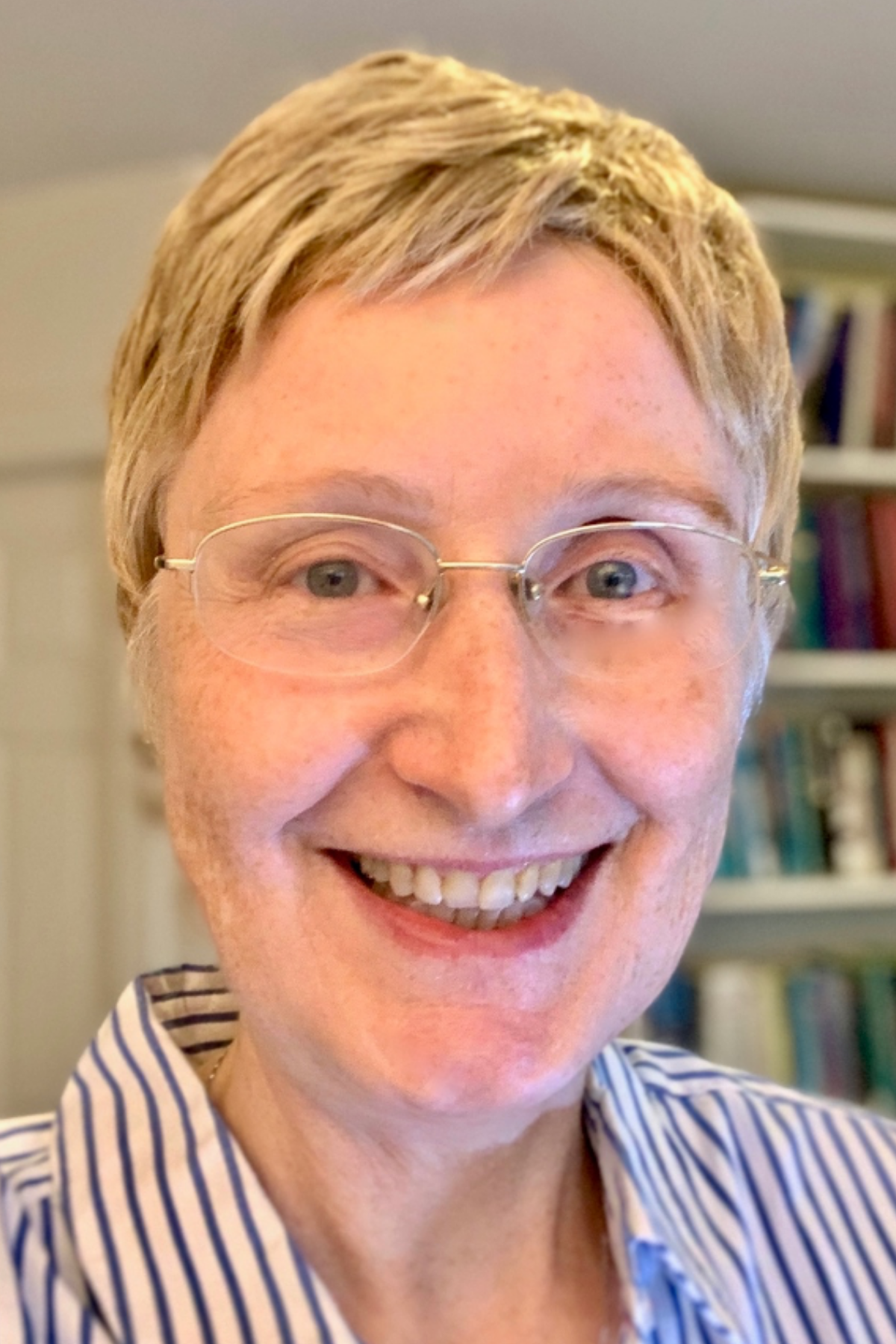
Greetings, AAAL community! Last year at this time, I was excitedly (and, yes, nervously) preparing for our Houston AAAL 2021 conference, which some weeks later morphed into our AAAL 2021 Virtual Conference. Thanks to the work of the Conference Organizing Team, our AAAL Office, and many of you, AAAL 2021 was a successful event with tremendous content; record registration numbers; high levels of participation across national, linguistic, and political borders and time zones; and opportunities for thematic and strand-based networking as well as open networking for registered attendees! After the conference, I had the pleasure of reading 130 pages of post-conference survey feedback, much of which was very complimentary and gratifying and also provided constructive suggestions regarding next year’s and future conferences. I thank all of you who contributed so meaningfully to our first virtual conference and then provided this feedback.
While the many preparations and lessons learned in March 2021 could have served us very well had we opted to host a second virtual conference in 2022, a large proportion of members who filled out the survey and others who contacted us expressed the strong desire to meet again in person next year rather than virtually—thus, the reference to “longing” in the title of this piece. Many others, on the other hand, wished to take part in another virtual conference or a hybrid event, allowing easier participation from around the world, especially given the uncertainties related to COVID-19. (The hybrid option was simply not feasible for financial and logistical reasons.) However, we remain optimistic about travel in 2022 for at least a good number of members of our AAAL community, and the situation in Pittsburgh looks very promising at this point. The surveys also indicated that many attendees made excellent use of the affordances of the virtual conference and planned to continue to access posters and presentations until September, one of the excellent features of the virtual platform! I, myself, have been returning regularly to the recorded presentations over the past two months, and I encourage you to do so as well.Post-conference planning: Leveraging content for wider discussion
Since the conference ended, I’ve been working with Kendall King (Immediate Past President) and our Online Education and Outreach Committee (OEOC), chaired by Carolin Fuchs, to launch some conference-related initiatives in the near future:
First, we will post our AAAL 2021 featured presentations (plenary and keynote lectures, the Distinguished Scholarship and Service Award lecture, and the Award Celebration) on our AAAL website for wider access until February 2022. We thank all of our outstanding speakers for permitting us to do this. Hosting this prime content on our website enables our wider AAAL community, not all of whom could register for the conference, opportunities to benefit from this cutting-edge content. Also in conjunction with OEOC, we are planning scheduled conversations with various speakers over the next six months in sessions that will be open to all AAAL members. More information will be circulated about this plan and schedule very soon.
Secondly, we plan to “flip” some of the on-demand content (e.g., from colloquia on related themes) for moderated discussions between now and the end of the year. Using this format, like flipped teaching, registered conference attendees would view particular sessions prior to the event, and then we would open conversations via Zoom to interested AAAL members for wider discussion, including participants not registered for the conference itself but who are interested in the topic. We will confirm these plans in the coming months.
Looking forward as an association
In addition to these 2021 conference-related updates, I want to share a few other items as we look ahead to what’s next:
- Strategic Planning: Our Strategic Planning Task Force is busy analyzing responses to a recent survey about members’ perceived priorities for the Association. We will keep you posted on how this input helps us think about the future of AAAL.
- AAAL 2022 in Pittsburgh: We are all very excited about the prospect of a face-to-face conference next March in Pittsburgh! Lourdes Ortega and her Georgetown University organizing team as well as our AAAL Office are hard at work planning a very exciting conference. We hope you will submit proposals between now and mid-July and make plans to attend!
- Awards Adjudication: Our Association has many awards, most of which have a deadline of June 1 for nominations. As a result, many of our awards-related Standing Committees will be busy between now and next January identifying the recipients of our 2021–22 awards! I thank each person involved in this important work for their expertise and service.
- Elections in June 2021: Please take part in the June election of new (2022) members of our Executive Committee and other committees and learn more about our future leaders.
In closing, with the imminent arrival of summer (in the North) and winter (in the South) and, in just a few months, the arrival of the new academic year (for many of us), we will experience different rhythms of life and work. I hope you will be able to enjoy some rest, relaxation, recreation, and reunions along the way! In addition, with the gradual (re)opening of our institutions, activities, and borders and with long-postponed gatherings of loved ones and colleagues near and far, I sincerely hope you will feel less burdened by the ordeals, challenges, and losses we have all encountered since March 2020. Furthermore, as a member of AAAL, I hope you feel a sense of community and belonging that can sustain you during both good times and bad. We aim to find ways to nurture these connections and help support your academic and scholarly endeavors in the coming year. In the meantime, please take good care of yourselves and keep an eye out for announcements regarding opportunities to participate in ongoing AAAL networking, education, and advocacy activities.
After Three Years, Join us in Pittsburgh in Person
Update from the AAAL First Vice President & 2022 Conference Chair
Lourdes Ortega, Georgetown University
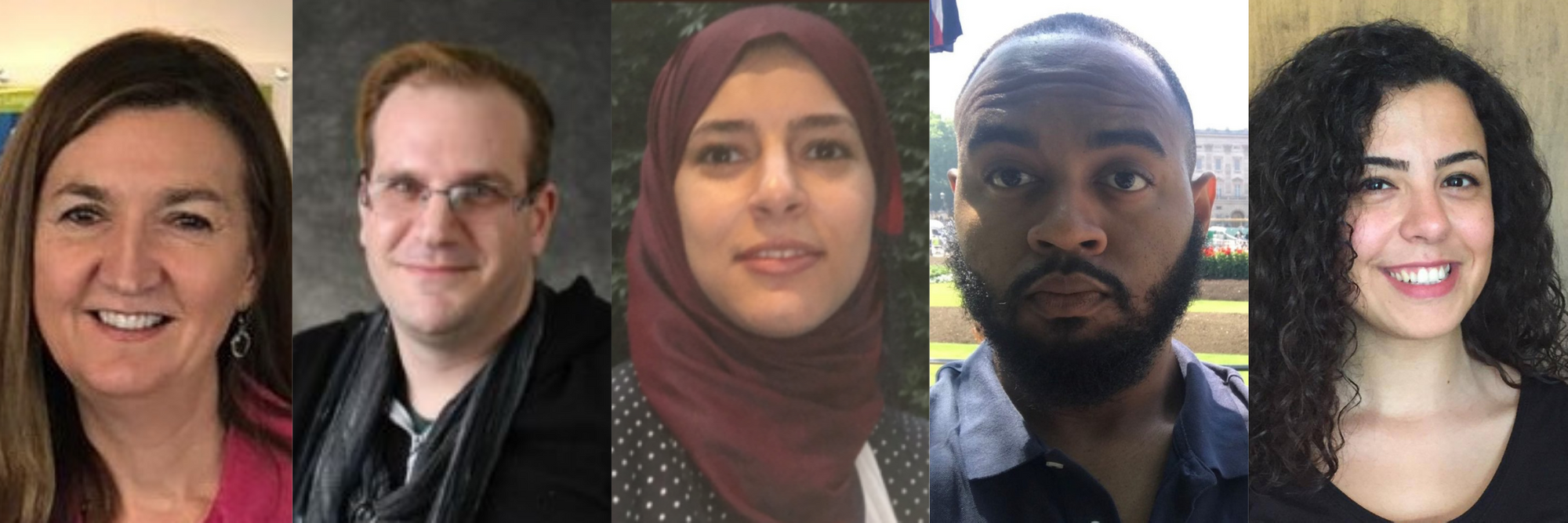
The Georgetown-based Conference Team for AAAL 2022: Dr. Lourdes Ortega (Chair), Jason D’Angelo,
Rima Elabdali, Malik Stevenson, & Şeyma Toker.
As chair of AAAL 2022, it is my pleasure to introduce the conference team based at Georgetown University, comprised of Jason D’Angelo, Rima Elabdali, Malik Stevenson, Şeyma Toker, and myself. This year, our first ever virtual conference was a huge success thanks to Patsy Duff and her UBC-based conference team! It is now time to make plans to meet next year at AAAL 2022 in Pittsburgh, Pennsylvania from March 19 to 22 at the Omni William Penn Hotel. If you don’t know Pittsburgh well, or not at all, you should know that we will be guests in the unceded ancestral lands of the Adena, Hopewell, Monongahela, and Osage peoples, who were followed by the Shawnee, Mingo, Lenape (or Delaware) and others, and later by the Hodinöhšönih or Six Nations Confederacy (comprised of Mohawk, Oneida, Onondaga, Seneca, Cayuga, and Tuscarora), who took refuge in the areas surrounding Pittsburgh. Also, you may want to find out why Pittsburgh is known as the Steal City, a shining gem on three rivers, and the Paris of Appalachia. After three years of not seeing one another (since Atlanta 2019!), attendees will surely have active social calendars and will want to enjoy the city’s many offerings. View the Visit Pittsburgh website or consult the Pittsburgh Beautiful website to get a taste for some of what the city has to offer. But be warned: we will also keep you busy with the vibrant sessions and events we are planning for you!
The theme for AAAL 2022 is Applied Linguistics in Times of Reckoning and Change. We want to offer a place-based conference that engenders deep conversations about how the work of applied linguists might be changing in response to these times of pandemic. They are times of reckoning—public reckoning over our most vexing world problems as well as disciplinary reckoning over pressing epistemic, methodological, and ethical questions about our research. How is the crisis impacting—both negatively and positively—our different sub-disciplines in terms of how applied linguists do research, communicate findings, test language, educate teachers, serve language students, and so on? We hope, within and across all strands, conference attendees will use the opportunity to engage in critical and often difficult conversations about systemic problems in the world and in academia. These problems have always existed. But the pandemic has exacerbated them and made them more visible than ever. Our goals for the 2022 conference program are ambitious: to nurture community, to support the interests of underrepresented and minoritized groups in the field of applied linguistics, and to increase opportunities for collaboration, dialogue, and action among all presenters and attendees.
An exciting addition to our 20+ strands this year will be research devoted to ADIST—Antiracism, Decolonization, and Intersectionality for Systemic Transformation. The realization of the need for a new strand like this came out of the many strategic discussions about diversity, equity, inclusion, and access that the Executive Committee has had over the past year, led by Fabiola Ehlers-Zavala, our Secretary. But the idea has come to fruition thanks to the collaborative and creative discussions about the shape and scope of this strand by Ryuko Kubota and Manka Varghese with their group of critical applied linguists and loyal AAAL members. The conference team is deeply grateful for these colleagues’ commitment and care which has made it possible to launch the exciting new ADIST strand!
You can look forward to six plenary talks that will be given by the following scholars (listed in alphabetical order): Uju Anya, on critical race pedagogy in world languages; Rodrigo Borba, on language research with transgender groups in healthcare, online interaction, and language education; Keiko Koda, on second language reading development; Tiffany S. Lee, on pedagogies of kinship and activism in Indigenous language immersion schools; Glenn Martinez, on language-related Latinx health research in and beyond the pandemic; and Hossein Nassaji, on instructed second language acquisition. Invited colloquia are still a work in progress, but four have been already confirmed: interpretation scholars and applied linguists joining forces and crossing boundaries (Claudia Angelelli); social, racial, and economic justice in applied linguistics research (Christian Chun); writing for global publication (Mary Jane Curry & Theresa Lillis); and binaries, essentialisms, and labeling in language research (Sangeeta Bagga-Gupta). Stay tuned for more featured colloquia soon! Other special events are also being planned. We will be providing updates through AAAL channels as the program develops.
The Georgetown conference team has very big shoes to fill indeed, after the fantastic job that Patsy Duff and her UBC team did with AAAL 2021. But we are hard at work, and we feel tremendously supported by Patsy and her team, the indefatigable AAAL Office, and all of the many generous AAAL members, like you, who have shared suggestions with us and expressed your support and availability to volunteer. We encourage you to view the call for proposals and submit your work in these times of reckoning and change, and we hope to see many of you in Pittsburgh!
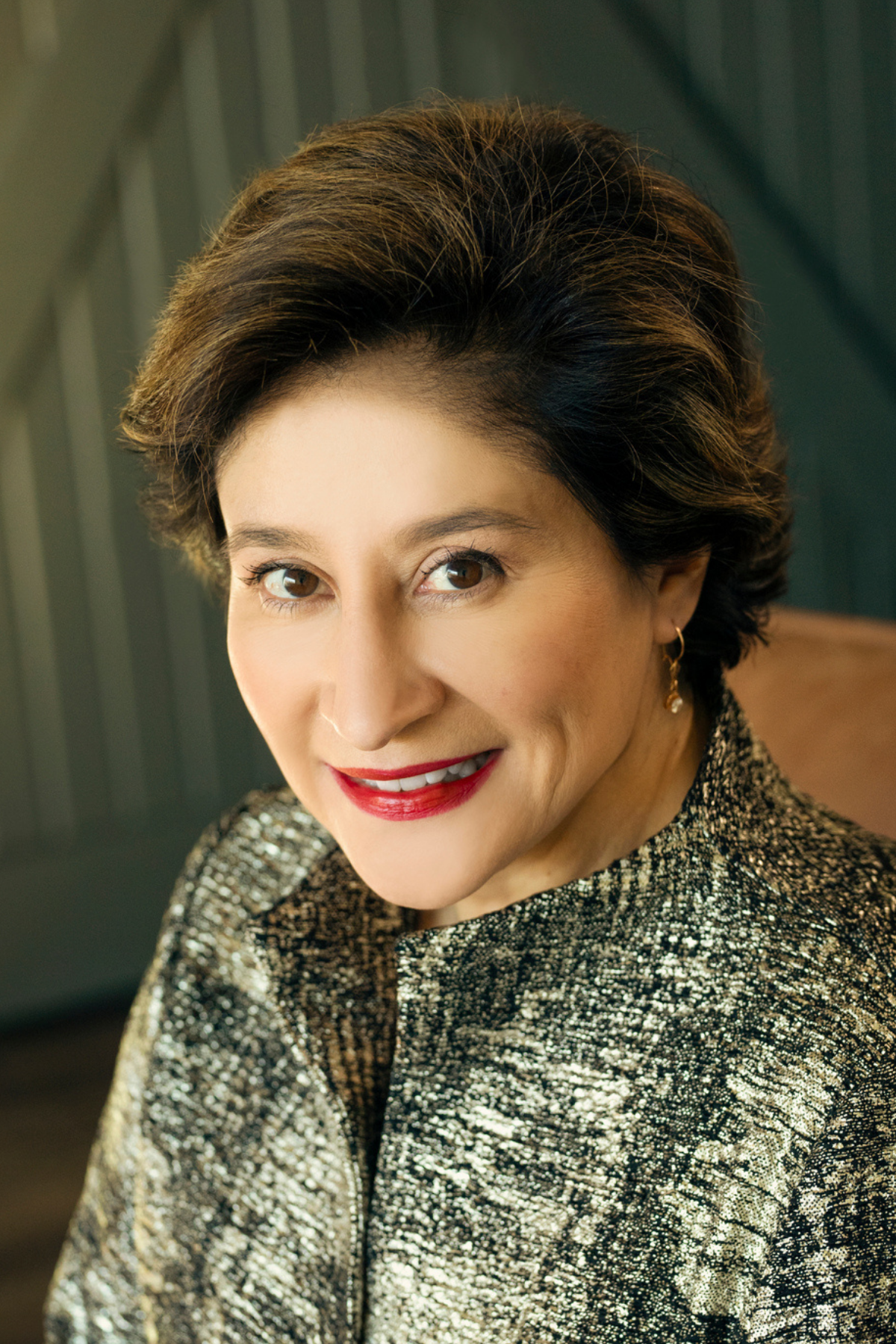
Diversity, Equity, Inclusion, and Access (DEIA)
Update from the AAAL Secretary
Fabiola Ehlers-Zavala, INTO Colorado State University
This DEIA update is two-fold. First, I would like to offer an update on the success of the DEIA social during our 2021 Virtual AAAL Conference. Second, I want to share with you a new initiative intended to ensure that we have coordinated efforts within and across AAAL on DEIA matters.2021 DEIA social
This year’s event was organized by Ashley Moore, Jason Mizell, Jessica Atkinson, and me. Following the conference, participants received a message of appreciation and were invited to complete a mini-survey to gather their feedback, which we received and subsequently discussed in April. Our impressions of the positive outcomes of the event are summarized as follows:
- The opportunity to interact with members of equity-seeking groups, make connections, and both build and experience a sense of community constituted a significant benefit.
- Participants expressed an interest to keep the conversation going to maintain momentum, to stay engaged, and to contribute to the work needed to support each other.
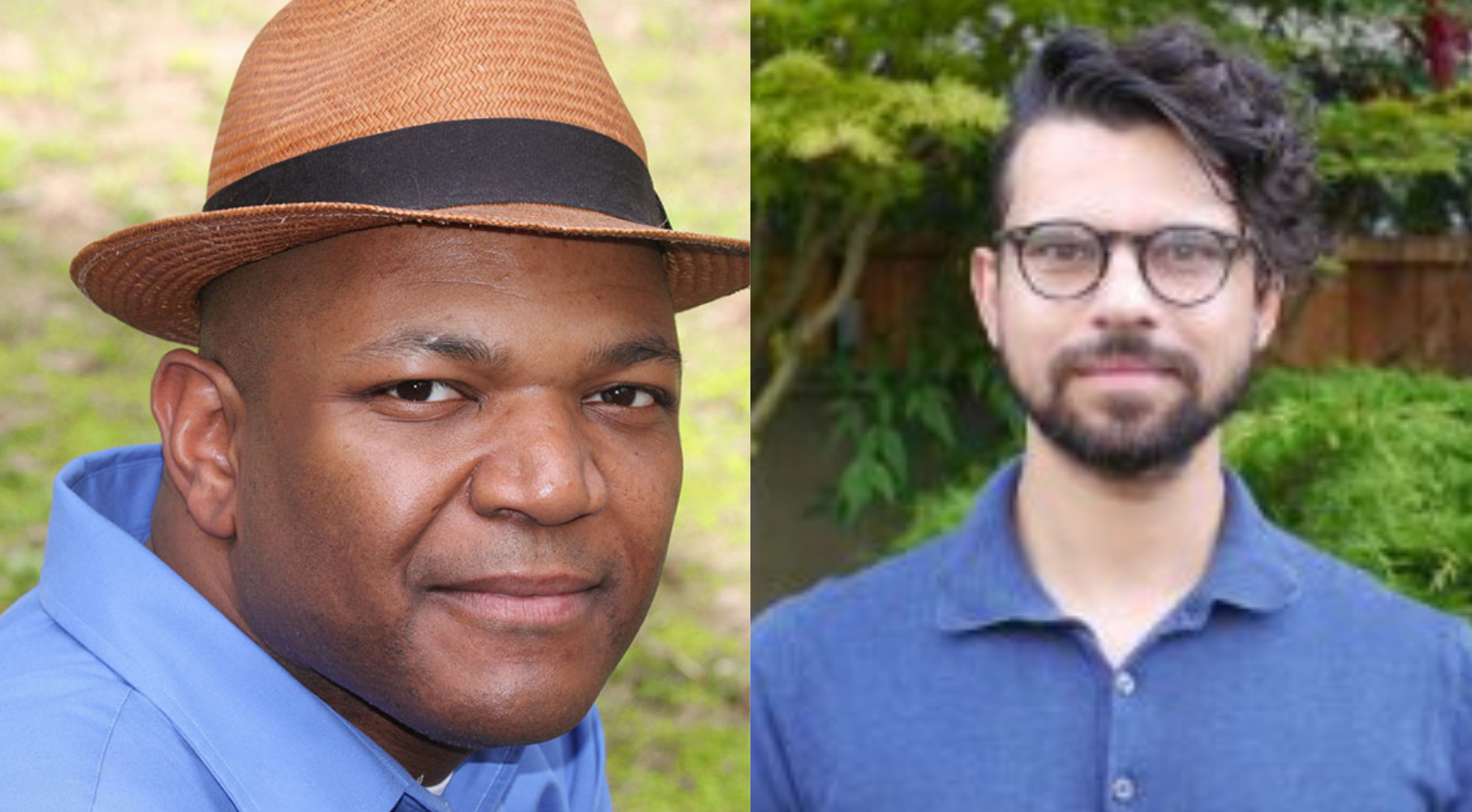
On behalf of the organizing committee, at the April meeting of the Executive Committee (EC), I offered some recommendations for consideration. Our recommendations were intended to provide feedback that would enhance the experience of participants and encourage other opportunities for involvement and networking during the year to maintain both momentum and interest. We also advocated that these groups be further empowered to determine how they wish to connect with each other. Our feedback is being taken under advisement by the EC.
Introducing the AAAL DEIA initiative(s) progress tracker
Building upon my DEIA report to the AAAL membership at the General Business Meeting this past March (and thinking ahead to support my successor this coming March 2022), I developed a proposal titled AAAL DEIA Initiative Progress Tracker for Executive Committee consideration and approval. I am pleased to inform you that the proposal was approved at our April 30, 2021 meeting.
The basic premise of this newly approved initiative is as follows: “Diversity, equity, inclusion, and access (DEIA) efforts by AAAL are intended to fulfill the organization’s commitment to addressing this important priority.” The DEIA Initiative Progress Tracker seeks to ensure that work towards advancing AAAL’s DEIA efforts and goals remain both a priority and a shared responsibility among the various AAAL constituents. It is intended to assist AAAL leaders (i.e., standing committee chairs and others) in these efforts:
- Planning that will advance the DEIA agenda in AAAL as well as account for progress or challenges encountered in meeting intended goals,
- Identifying challenges encountered along the way in order to seek support from the EC of AAAL to overcome those challenges,
- Collecting data to set benchmarks that will contribute to the assessment and evaluation of progress in DEIA matters, and
- Providing accountability to the organization/membership annually regarding DEIA efforts and progress.
In practical terms, this effort will entail the following: Every year, for the period between April (i.e., April 2021) and February (i.e., February 2022), standing committee chairs and any other officers who may wish to contribute additional initiatives will be expected to submit the following items:
- A yearly plan of the DEIA effort(s)/initiative(s) the leader or committee intends to accomplish. This will be completed through a project management sheet to be provided by AAAL.
- An annual update (i.e., end-of-cycle report) on the same planning sheet. Here, leaders will indicate if the proposed initiative was accomplished as initially planned, addressing its impact. If the activity was not fulfilled, leaders will be expected to provide commentary as to the barriers faced.
In sum, the DEIA Initiative Progress Tracker is intended to support AAAL’s efforts in moving DEIA work to a strategic level that reaches across the entire organization.
I am looking forward to reporting on progress related to this initiative at the next General Business Meeting!
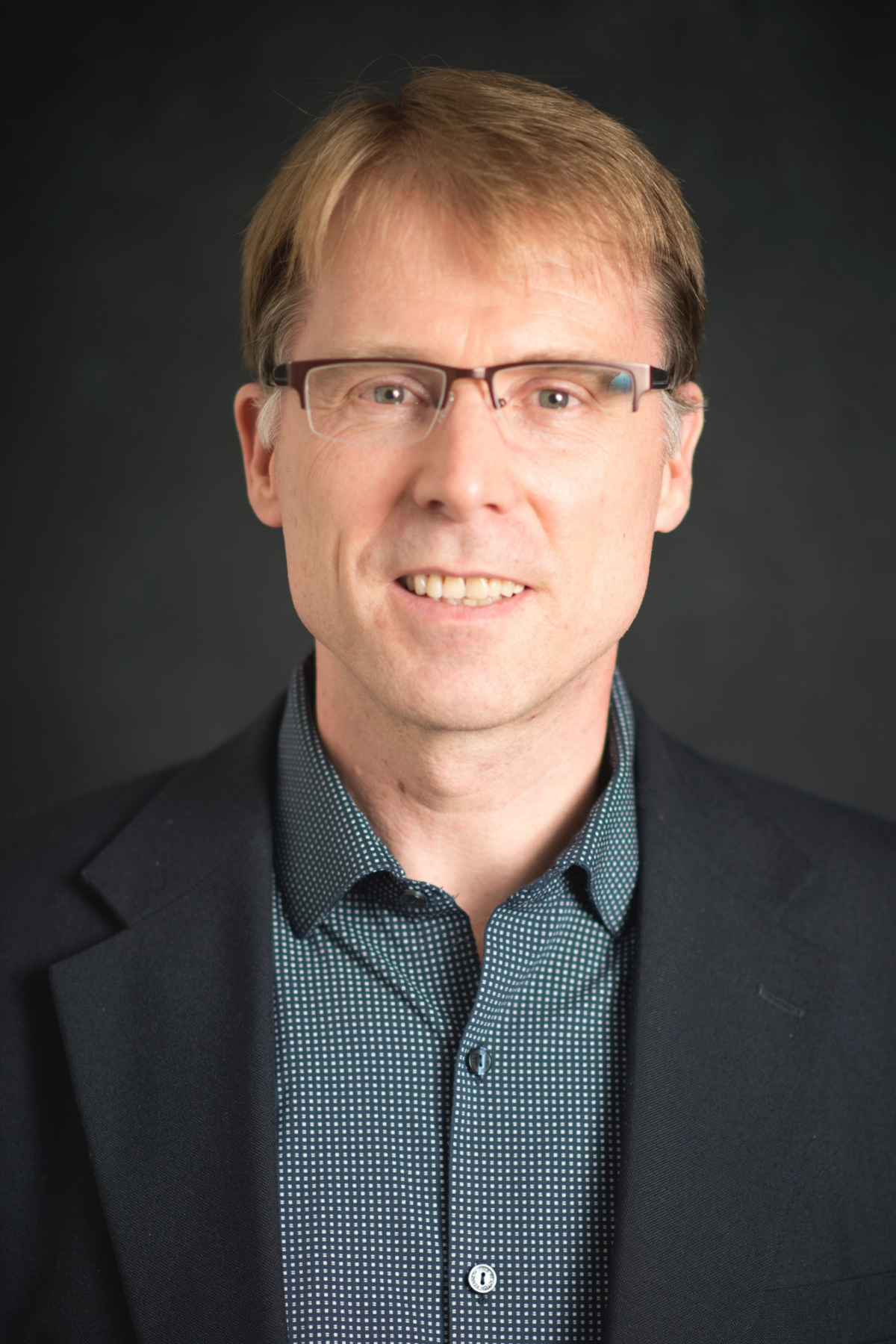
AAAL’s Finances and Membership
Update from the AAAL Treasurer
Scott Jarvis, University of Utah
As the new Treasurer of AAAL, I want to express my gratitude to my predecessor, Glenn Martinez, for the excellent job he has done in keeping AAAL financially healthy during such difficult and uncertain times. He has also helped me a great deal as I have learned about my new responsibilities. I also want to thank AAAL’s Managing Director, Terry Dougherty, for the constant and generous help she offers me—including putting together the following brief summary of our Association’s finances and membership.As Glenn Martinez reported during the Annual Business Meeting, at the end of calendar year 2020, our financial position was strong. Currently, at the end of the first quarter of 2021, our total assets stand at over $1.3 million inclusive of operating cash, association investment accounts, and the Fund for the Future of Applied Linguistics endowments. We experienced a decline in our investment income in 2020 due to market volatility. It is our expectation that much of this loss will be recuperated as markets continue to stabilize in 2021.
Our income is generated from three primary sources: membership dues, conference income, and investment income. In 2020, our membership dues generated $172,129.32, which constituted 80% of our budget. Investment income yielded $58,130. Membership dues were down just 1.9% from 2019. Due to the cancellation of the 2020 conference and the expenses incurred, the conference had an overall loss of $27,183.76. Despite the financial impact of COVID-19, we were able to keep our losses to a minimum and end the year 2020 with a net income of $19,085.77. We continue to meet on a quarterly basis with our financial advisor at Morgan Stanley to ensure that our investments are sufficiently diversified to maximize investment income and minimize the likelihood of losses.
Association expenditures have remained stable over the past few years. Our 2020 expenditures were down considerably, due to the cancellation of the conference. The 2021 virtual conference was a huge success, and our projected net income is expected to be approximately $195,000. This income will help to replenish our reserves with respect to the losses we incurred with the cancellation of the 2020 AAAL Conference in Denver and the 2021 AAAL Conference in Houston.
Our membership is the single most important indicator of our impact and influence on the field. I am happy to report that our overall membership is up by 12% from 2019. We attracted 780 new members in 2020, which represents an increase of 10% in new memberships. We also saw a 13% increase in renewals.
The Fund for the Future of Applied Linguistics (FFAL) was established in 2000 as an endowment fund for the purpose of funding Graduate Student Awards to attend the annual conference. Our FFAL Trustees initiated an appeal to senior AAAL scholars in February 2021. In their letter, they announced two important contribution levels: Foundation (for those who donate $1000 or more) and Leader (for those who donate $500–$999). To date, the FFAL Trustees have received nine foundation-level gifts and five leader-level gifts. In addition, they recently received two very generous contributions, one for $2500 and another for $5000. In order to recognize these extraordinary gifts, the trustees have created two new contribution levels: Sustainer (for those contributing $5000 or more) and Benefactor (for those contributing $2500–$4999). Importantly, contributions of any amount are essential to our ability to increase the number and amount of these awards and to help support our growing student membership. You can donate to the FFAL upon renewing your membership, when registering for the conference, or at any time by visiting the AAAL website.
I am looking forward to serving as your treasurer. Please do not hesitate to contact me, Joan Kelly Hall (FFAL Trustee Chair), or any of the members of the Executive Committee if you have questions or ideas for how to improve our Association.
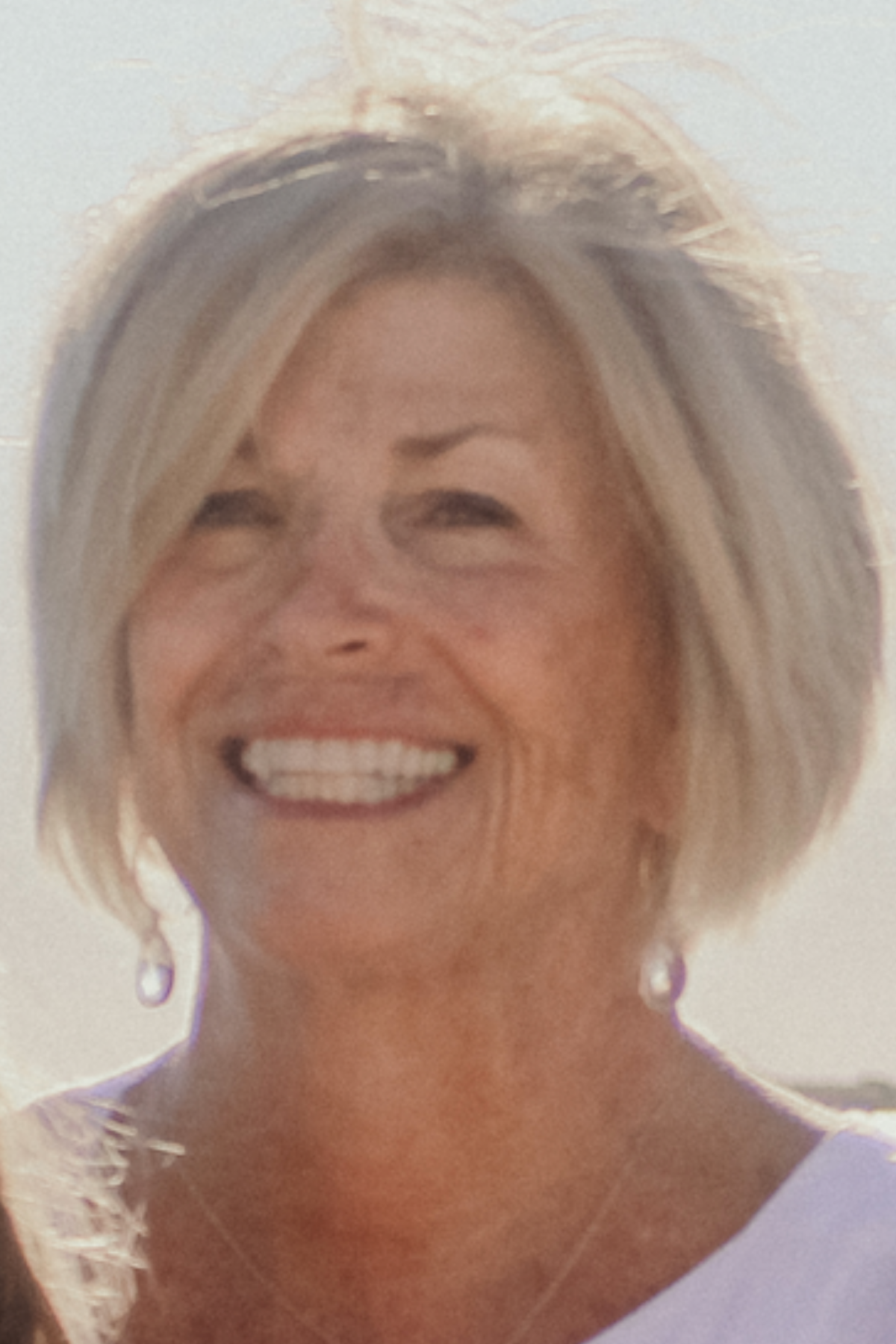
FFAL Announces a New Campaign: The Campaign to Sustain the Future of FFAL
Update from the Fund for the Future of Applied Linguistics (FFAL) Board of Trustees Chair
Joan Kelly Hall, Pennsylvania State University
or over twenty years, despite fluctuations in donations and market income, the FFAL endowment fund has provided travel awards to a total of almost 100 deserving graduate students. Many of these individuals have joined the global network of applied linguists in various capacities and continue to support the mission of AAAL through their academic scholarship and service to the profession. The graph below illustrates FFAL endowment activity from 2011 through the end of 2020. The dip in award expenses in 2020 reflects the fact that there was no AAAL conference due to the global pandemic.
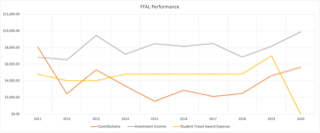
AAAL is committed to ensuring the sustainability of the FFAL endowment in order to support our graduate students for the next twenty years. To do so, we need to increase the endowment from its current level of about $165,000 to $225,000. The additional $60,000 will allow FFAL to remain stable in the face of investment income instabilities that may arise over the next two decades.
Toward this end, we have begun a new campaign to increase FFAL’s endowment by the end of 2023. This new effort is called The Campaign to Sustain the Future of FFAL. During the first phase of the Campaign, senior faculty and leaders in AAAL received an email letter asking them to consider making Foundation gifts of $1,000 or more or Leader gifts of $500–$999. The response thus far has exceeded our expectations. Since the email was sent in February 2021 to the end of March 2021, we have received donations totaling almost $20,000. These donations are an incredible display of generosity from our AAAL members. (See the AAAL Treasurer’s Report for more information.) The list of contributors through March is below. Please join me in thanking each of these generous individuals for making a significant investment into the future of FFAL.
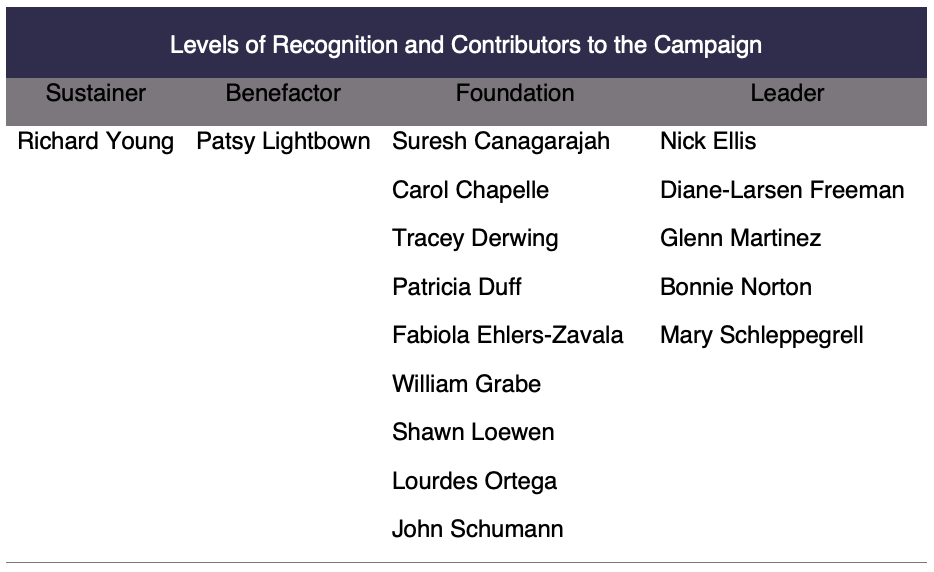
We will soon begin the second phase of the Campaign with an email to the entire membership explaining how to contribute. We will also be adding information about the Campaign to the AAAL website.
AAAL offers unique professional growth opportunities to graduate students in applied linguistics by providing financial support to attend and present at its annual conference. These outstanding individuals are the future of our profession. Please know that your generosity in helping FFAL to continue to support them is very appreciated. If you have ideas for enhancing or expanding the Campaign, please contact one of the members of the FFAL Board of Trustees: Joan Kelly Hall, Chair; Suresh Canagarajah, Past Chair; Dudley Reynolds, Incoming Chair. Thank you!
Collaborate, Mobilize, and Advocate for Social Justice
Update from the Public Affairs & Engagement Committee (PAEC) Committee Chair and Vice Chair
Netta Avineri, Middlebury Institute of International Studies, and Rachel Showstack, Wichita State University
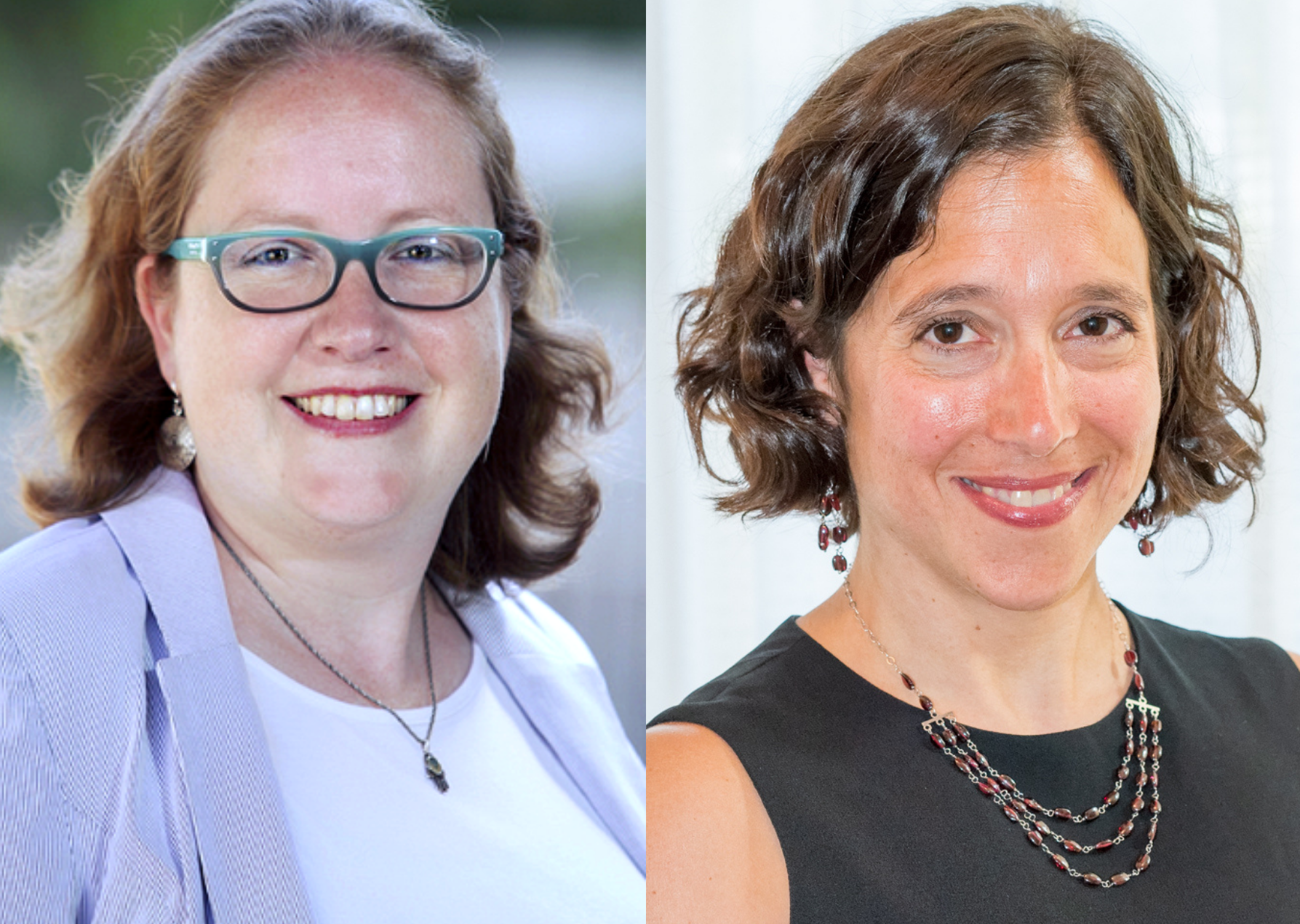
Now more than ever, we need to collaborate with one another to ensure justice for all. Have you been looking for a meaningful professional outlet for responding to current world events? Are you interested in collaborating with other applied linguists to advocate and mobilize for social change? Then we encourage you to get involved in the work of the AAAL Public Affairs and Engagement Committee.What is the Public Affairs and Engagement Committee? Who serves on the Committee?
The Public Affairs and Engagement Committee (PAEC) is made up of scholars/practitioners with a range of expertise in applied linguistics topics relevant for social change: Netta Avineri, Katherine Moran, Lourdes Ortega, Rachel Showstack, Amelia Tseng, and Bedrettin Yazan as well as graduate student representative Svetlana Koltovskaia. The committee is a standing committee of AAAL that was formed in December 2016 as “an important means by which AAAL members can bring their collective expertise to bear on issues of social importance and inform public debate by speaking to issues of social and professional relevance.” The PAEC exists to accomplish the following: (1) represent the AAAL membership in relation to public issues and (2) facilitate AAAL members’ involvement in issues of public importance.
What does the PAEC do?
Since 2017, the PAEC has focused on creating position statements, endorsing professional organization and congressional statements, participating in advocacy and social justice events at AAAL 2018 (AAAL Professional Development Session “Public Advocacy and Media Engagement: Voices from the Field”) and at TESOL 2018 (Colleague Association Session “AAAL Public Affairs and Engagement Initiative: Collaborating for Social Justice”), and building membership in the Applied Linguistics and Social Justice listserv.
On August 5, 2020, the PAEC organized and hosted a webinar entitled “Applied Linguists in the Public Realm: Collaborating for Justice.” The engaging speakers—John Baugh, Maneka Deanna Brooks, and Glenn Martínez—provided a range of insightful perspectives on their own compelling work in this area, and PAEC Chair Netta Avineri moderated the engaging session. We encourage you to read the recent position statement against anti-Asian and anti-AAPI violence. Also, please see our recent endorsement of House Resolution 908, “Condemning all forms of anti-Asian sentiment as related to COVID-19,” our recent endorsement of the ACTFL and TESOL Statements on the Killing of George Floyd and Systemic Racism/Racial Injustice in the US, and our recent endorsement of the TESOL statement on the Capitol Building Attack.
The PAEC also facilitates the creation and dissemination of applied linguistics briefs (short briefs on language-related topics of potential interest and importance written in language that would be accessible to people outside the field). The 3 Briefs from our pilot phase can be found here. We are currently working on refining the brief guidelines and will publicize those in mid-2021 to invite AAAL members’ contributions.
At the AAAL 2021 PAEC Open Meeting, a number of conference attendees came together to discuss PAEC initiatives moving forward, including webinars, resources, infographics, and social media engagement with/for the public. In July 2021, we will be offering a webinar entitled “Writing for/with the Public”—stay tuned for more details!
How can you get involved?
AAAL members can get in touch with ideas for projects and initiatives of social concern. For example, you can propose position statements or endorsements or work with other scholars/practitioners to create op-ed pieces, blog posts, social media outreach, or webinars relevant to the membership and public at large. Please feel free to contact Netta Avineri with your ideas.
We encourage AAAL members to join the Applied Linguistics and Social Justice listserv (300 AAAL members strong), an online collaborative space for sharing ideas, resources, publications, and initiatives focused on applied linguistics and social justice.
We’re looking forward to working with you!
Upcoming and Ongoing Initiatives
Updates from the Standing Committee for Online Education and Outreach Chair and Vice-Chair
Carolin Fuchs, Northeastern University, and Michael Amory, Oklahoma State University
The Standing Committee for Online Education and Outreach is excited to begin its second official term as a standing committee within AAAL. We hope to establish new and exciting initiatives in order to continue providing opportunities for learning, engagement, and connection in virtual spaces. With the support of the Executive Committee, the four sub-committees that comprise our Standing Committee have been actively working through and planning new strategic goals and initiatives for the 2021–2022 term. In this newsletter piece, each sub-committee, in turn, will provide an overview of their work as we look towards the future and explore the ways in which we can support both members and non-members of AAAL.
AAAL website and content development
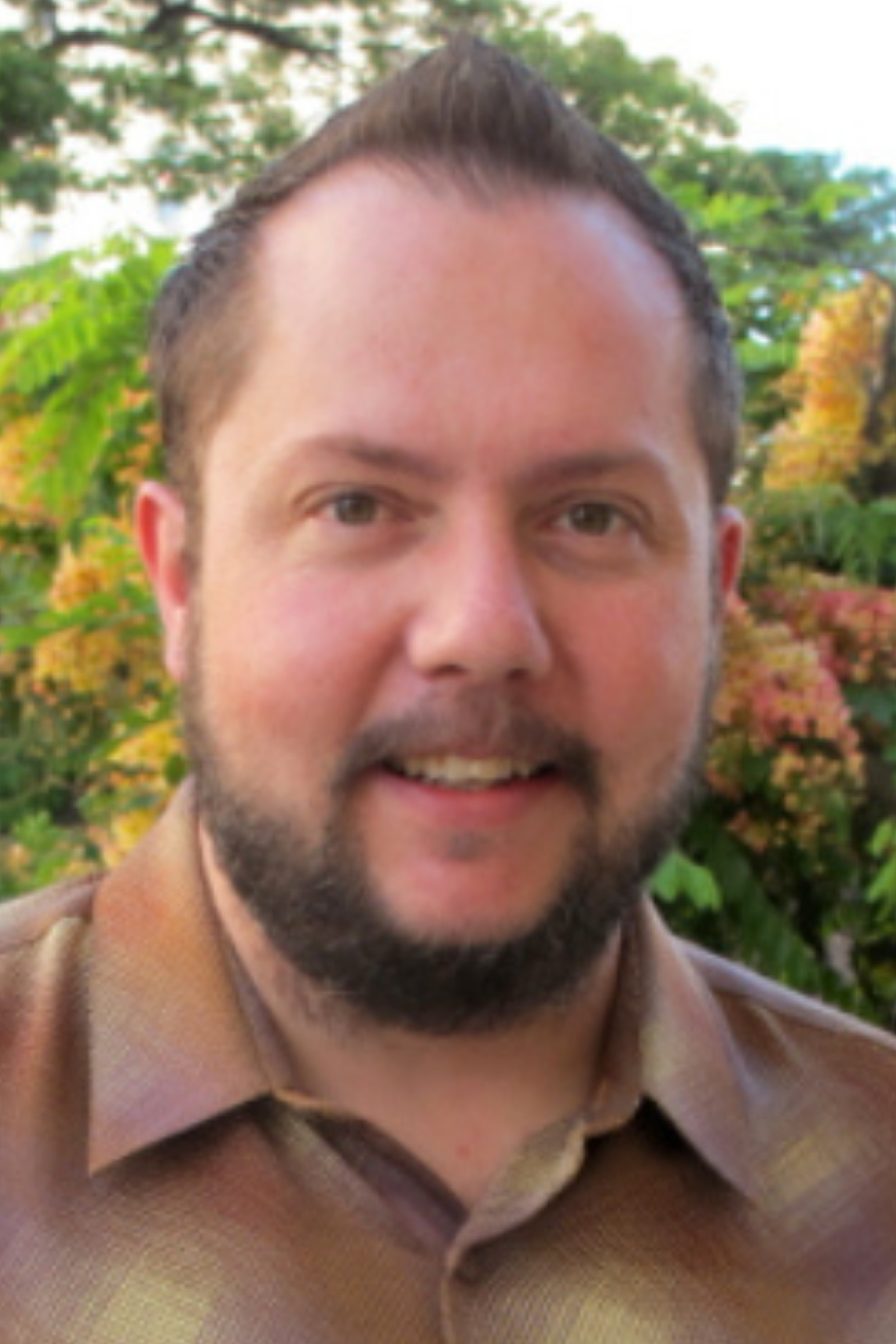
Sub-Committee Chair: Joe Cunningham, Georgetown University
Leading up to the 2021 AAAL conference, the sub-committee reviewed the Association’s website, suggesting strategic changes to improve the user experience. With the start of a new term, the sub-committee looks to build on the success of the 2020 AAAL webinar series by coordinating with the Public Affairs and Engagement Committee to organize a webinar for July 2021. The topic will be “Writing for/with the Public.” Most recently, the sub-committee has revisited its short-, mid-, and long-term priorities in order to determine the scope of the sub-committee’s work for the remainder of the term. In addition to our ongoing attention to the AAAL website and planning for the July 2021 webinar, the sub-committee will continue seeking ways to maximize the value of membership in AAAL.
AAAL professional development
Sub-Committee Chairs: Jinrong Li, Georgia Southern University, and Stephen Skalicky, Victoria University of Wellington, New Zealand
The members of the professional development sub-committee are all eager to begin a new term of service. Our goals for the new term are to continue seeking ways to provide AAAL members with resources and information designed for professional development. Our feedback from AAAL members so far indicates a strong desire for research and teaching resources, but we are also eager to hear from members directly regarding their professional development needs. Please feel free to reach out to Jinrong Li or Stephen Skalicky with any ideas, requests, or suggestions that you may have.
AAAL social media
Sub-Committee Chair: Yu Jung Han, The University of Rochester
During this past term, the social media sub-committee has created and implemented social media monitoring guidelines, and two of our team members are in charge of monitoring the AAAL social media platforms. To ensure that no posts violate our social media policies, the team is monitoring AAAL Twitter activity. Currently, we are initiating and planning several social media-centered events. Please stay tuned for more information! In addition, in April, the social media sub-committee welcomed a new member—Peggy Semingson. Peggy is an Associate Professor of TESOL at the University of Texas at Arlington. With a new member on board, the social media sub-committee is ready for a new term during which we will continue to enhance and grow AAAL’s social media presence.
AAALetter
Sub-Committee Chair: Stephanie Link, Oklahoma State University
Sub-Committee Members: Sarah Hercula, Missouri University of Science and Technology, and Melike Ünal Gezer, TED University, Turkey
The AAALetter editorial team is proud to enter its second term. Our aim is to broaden our reach by providing AAAL members with increased access to information about the benefits of AAAL membership and to the demographics of our membership. If you have ideas or questions, feel free to contact us directly at aaaletter@aaal.org.
To learn more about the Standing Committee for Online Education and Outreach and its sub-committees, please stay tuned for updates by following our social media pages: Twitter and Facebook. In addition, if you have any comments, ideas, or feedback, please contact us at aaalonline@aaal.org.
Conference Connections 2021 Mentoring: A Year of Growth
Updates from the Conference Connections Committee Chair
Bethany Gray, Iowa State University
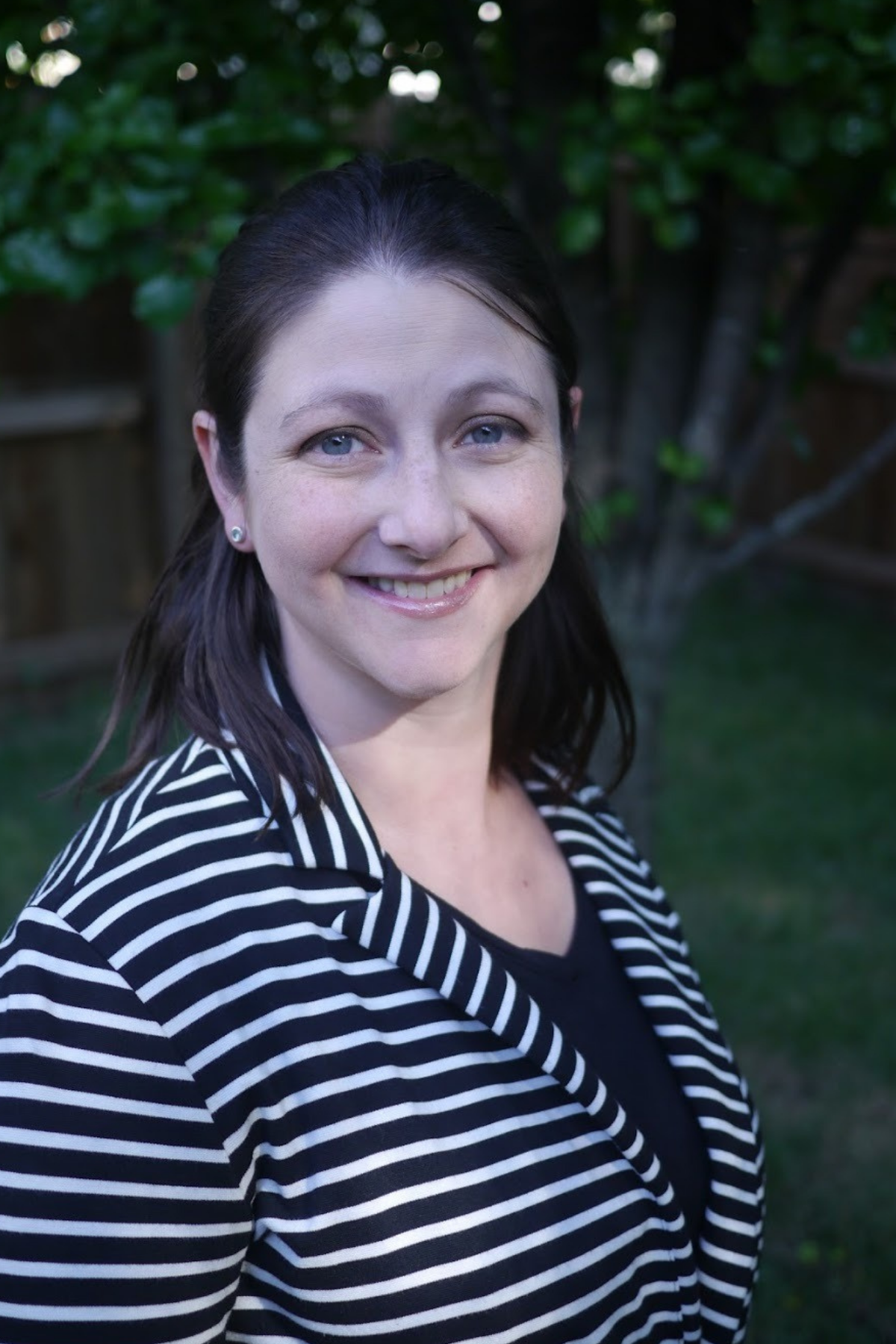
At AAAL 2021, the third year of the Conference Connections mentoring program experienced substantial growth. With a streamlined registration system, a record number of student attendees registered to participate, yielding 451 mentees—a 400% increase from previous years! Conference Connections (CC) pairs student attendees with more senior AAAL members to support mentees through their participation in the conference and to provide professional development opportunities as they build connections with more experienced AAAL members. We are incredibly grateful to the 288 mentors who made it possible for the CC committee to pair each registered mentee with a mentor, either individually (for a one-on-one mentoring session) or in a small group (two or three mentees paired with a mentor), in which mentees made connections not only with a mentor but also with other students attending AAAL.
With this year’s online conference, mentors and mentees met virtually at a time convenient for them during the conference or in the following weeks. As in previous years, mentees could choose between two main types of mentoring during the conference:
- General mentoring support, in which students in earlier stages of their scholarly development connect with their mentor on topics such as navigating AAAL and the field of applied linguistics, their general research interests and research trajectory, advice for writing a successful conference proposal, navigating life as a graduate student, and many more topics, and
- Research and advanced professional development, in which students who are in the later stages of their academic careers engage with their mentor regarding topics related to their specific research interests, tips and advice for publishing in the field of applied linguistics or applying for external funding for their research, or preparation for the academic job market. Because these are one-on-one sessions, mentors and mentees spend their virtual time together focusing on topics that will best support the mentee and engage with the mentor’s expertise and knowledge.
All mentors and mentees who participated in the 2021 Conference Connections program will be receiving a follow-up survey in the coming weeks. We encourage all participants to respond to the survey and provide feedback to inform next year’s mentoring program.
I would also like to thank the CC committee for their service this year and their incredible efforts to coordinate the program, given the substantial and unprecedented growth in participation:
- Dustin Crowther, The University of Hawai‘i at Mānoa;
- Francis Hult, University of Maryland, Baltimore County;
- Matt Kessler, The University of South Florida;
- Jiyoon Lee, University of Maryland, Baltimore County;
- Laxmi Prasad Ojha, Michigan State University;
- Matthew Poehner, The Pennsylvania State University;
- Christina Ponzio, Michigan State University;
- Andrea Révész, University College London; and
- Bedrettin Yazan, The University of Texas at San Antonio.
A special thanks also goes out to Jessica Atkinson in the AAAL Office, who provided invaluable administrative support.
Three committee members’ terms have concluded, so we thank Francis Hult, Matthew Poehner, and Andrea Révész for their commitment to the CC program over the last three years. The committee is pleased to welcome three new committee members: Brittany Frieson (The University of North Texas), Mihiri Jansz (The Open University of Sri Lanka, Sri Lanka), and Irasema Mora Pablo (Universidad de Guanajuato, Mexico).
Building Forward Momentum
Update from the Graduate Student Council
Laxmi Prasad Ojha, Michigan State University and Svetlana Koltovskaia, Oklahoma State University
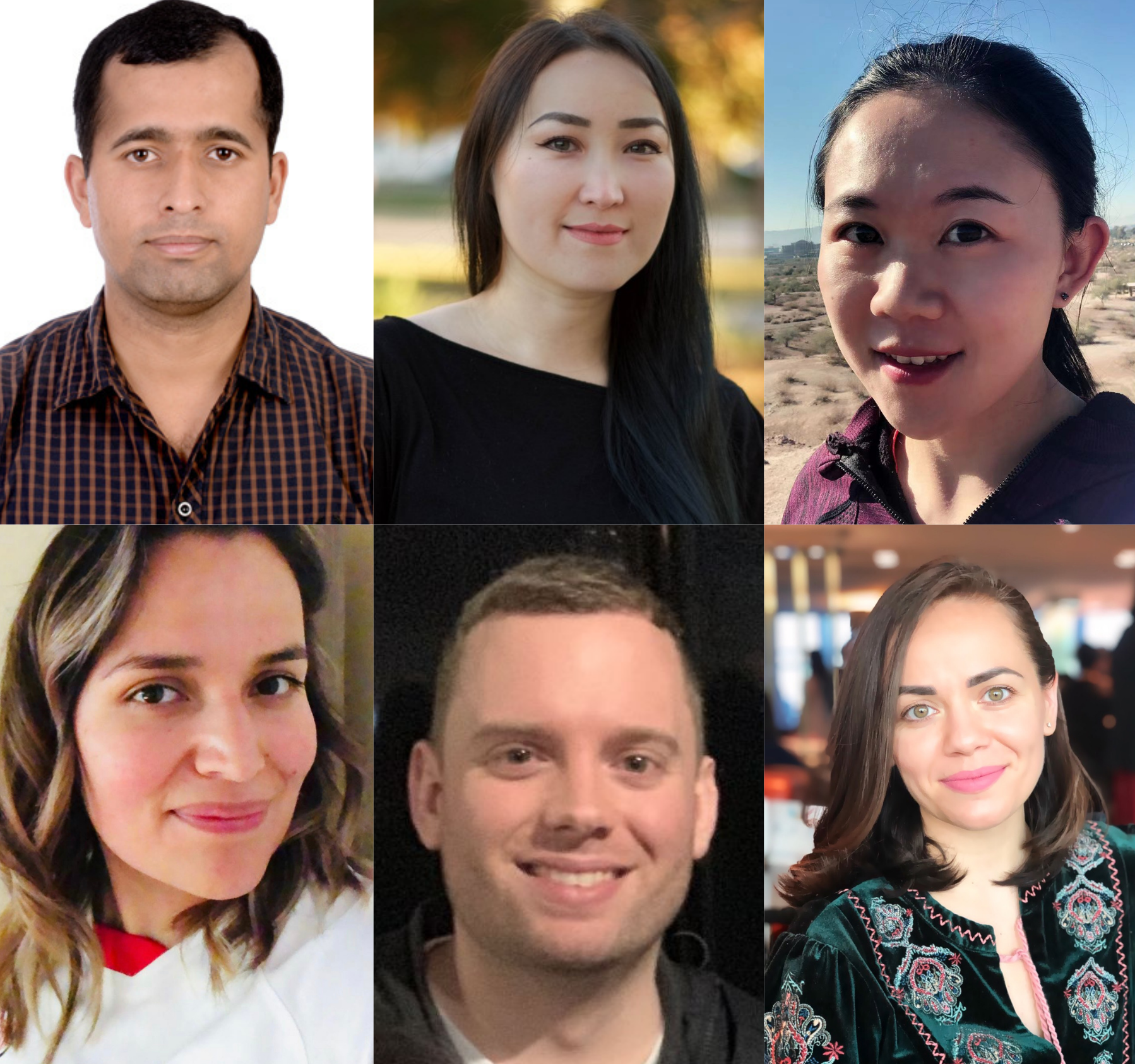
We are delighted to introduce the incoming Graduate Student Council Steering Committee for the 2021–2022 academic year. Laxmi Prasad Ojha, Michigan State University, and Svetlana Koltovskaia, Oklahoma State University, will serve as Co-Chairs; Xiao Tan, Arizona State University, will serve as Secretary; and Lupe Rincon-Mendoza, Pennsylvania State University, Nathan Thomas, UCL Institute of Education, UK, and Oksana Moroz, Indiana University of Pennsylvania, will serve as Members-at-Large. We had our first virtual meeting at the end of April and are now planning for our events and initiatives for the next year.
As part of the 2021 Virtual AAAL Conference, the GSC hosted two pre-conference workshops for the graduate students. The first workshop, titled “Balancing the Holistic Experience of Being a Graduate Student,” was held on Wednesday, March 17, and the second workshop, titled “Developing Strategies for Publishing and Interviewing,” was held on Thursday, March 18. We also hosted three social hours on Friday, March 19. Altogether, the events were attended by more than 200 graduate students from around the world. GSC is planning to host similar events at the AAAL 2022 Conference in Pittsburgh.
The GSC newsletter team is about to finalize the Spring 2021 issue, and the new team is working on its fall 2021 issue themed, “Looking Forward: A Return to Normal or New Beginnings?” So stay tuned!
In Spring 2021, we also have continued our tradition of publishing blog posts and YouTube videos on different topics that may be of interest to our audience. We published three blog posts, one of which was entitled “Finding Your Place in a Pandemic: The Non-Academic Job Market,” written by Dr. Angel Steadman (Duolingo & Highline College). In another blog post, a PhD student at Northern Arizona University, Seda Acikara, shared her experience “Being an International Graduate Student and OPT Candidate in the Midst of the Pandemic.” We also published a blog post written by a recent PhD graduate from Georgia State University, Dr. Selahattin Yilmaz, who shared his story of “Finishing PhD During the Pandemic.” In line with our blog post theme on finding jobs outside academia, a recent video on our YouTube channel featured Dr. Cindy Berger (Duolingo), who shared tips on applying to non-academic jobs with a specific focus on working in educational technology.
If you want to learn more about GSC events and/or become a part of the GSC team, please follow us on our social media to keep updated about our events and calls:
GSC Website: www.aaal-gsc.org
AAALGrads: https://www.aaal-gsc.org/newsletter
Facebook: AAAL Graduate Students
Twitter: @AAALGrads
YouTube: AAAL GSC
LinkedIn: AAAL Graduate Student
Annual Review of Applied Linguistics (ARAL)
Update from the ARAL Editorial Assistant and Editor-in-Chief
Erin Fell, Georgetown University and Alison Mackey, Georgetown University
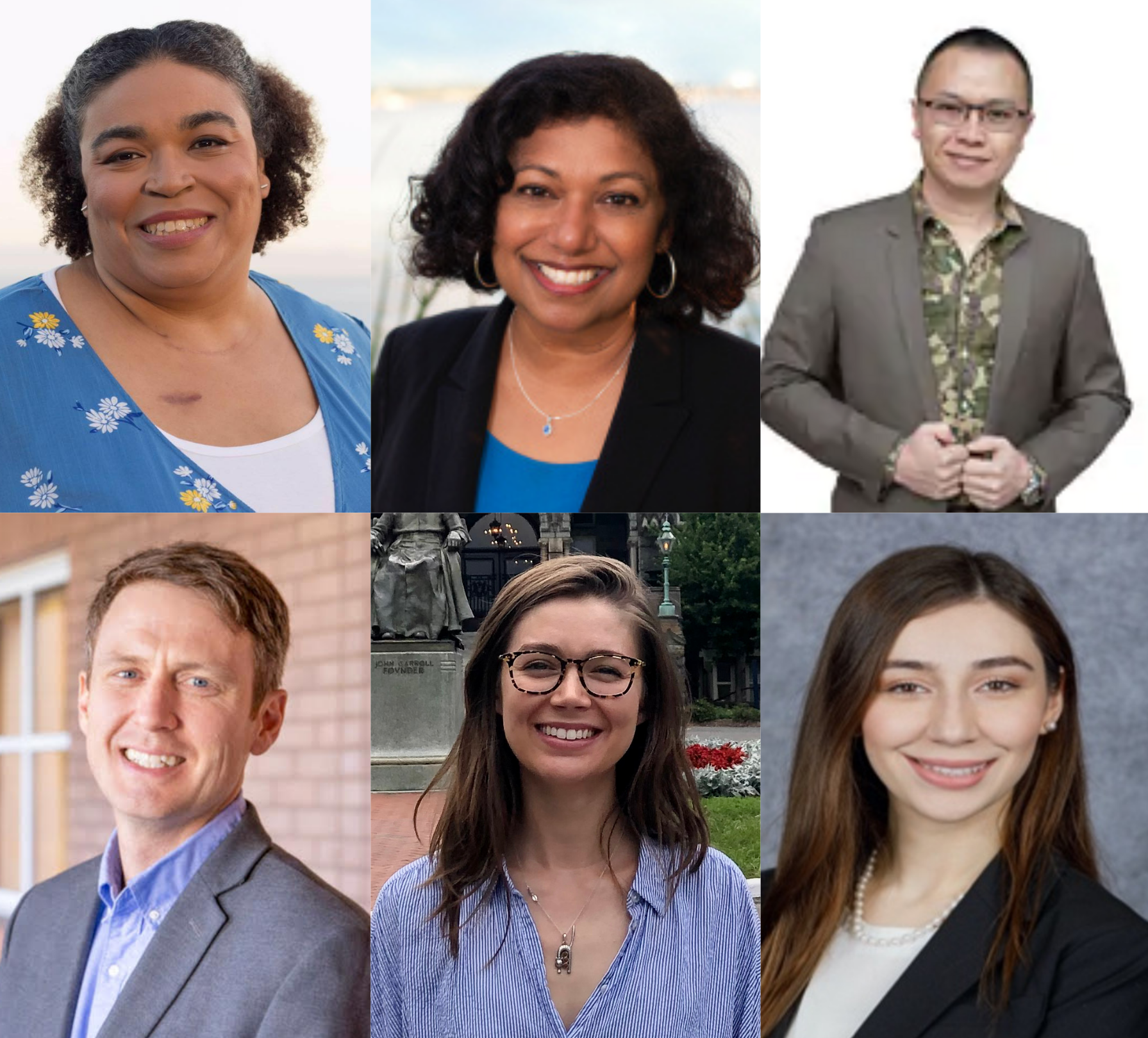
We are pleased to announce the upcoming (2021) volume of the Annual Review of Applied Linguistics. ARAL 2021 addresses the construct of language aptitude, broadly considered. The journal’s characteristic mosaic of article types (position pieces, empirical reports, syntheses, and reviews) lends itself well to this dynamic field of inquiry, in which many spirited debates are present. This year’s authors (in alphabetical order by the last name) include the following: Adriana Biedroń, Catherine J. Doughty, Gülcan Erçetin, Kenneth Hyltenstam, Saime Kara Duman, Amelia Lambelet, Shaofeng Li, Mirosław Pawlak, Susanne Reiterer, Peter Skehan, Sabrina Turker, Zhisheng Wen, Şebnem Yalçın, and Huijun Zhao. These authors address the construct of aptitude from a variety of perspectives with empirical investigations that include participants from a range of first languages, contexts for additional language learning, and geographic locations. The authors probe the relationships amongst language aptitude and working memory (with some envisioning working memory as a part of aptitude) and such L2 skills as listening comprehension, lexical development, phonemic discrimination, and grammatical awareness. Mediating factors—including fascinating aspects like musical ability, professional training, residence in the L2-speaking environment, and prior knowledge—are also explored, further underscoring the expansion of areas in this exciting field of second language acquisition research.
In the spirit of the commitment ARAL has to Open Science, we continue to award articles with badges for Open Materials and Open Data. Data sets from this and other ARAL issues are accompanied by sample coding sheets and analyses, allowing ARAL readers the chance to view, manipulate, and re-analyze the data themselves, in keeping with Open Science principles.
As an invitation-only journal, ARAL plans the focal themes of the issues well in advance of publication. The 2022 issue will center the voices of emerging scholars (that is, early career academics) in a series of pieces focused on the theme of social justice in applied linguistics. Each scholar will be paired with a mid- or established-career scholar in the same area as part of a collaborative mentor-reviewing process, with the goal of creating a more supportive, open, and growth-oriented review process and allowing for a wider range of voices and perspectives as well. Each scholar will contribute a single-authored article of around 3,000 words to the issue. All contributions to this issue will be short in order to allow for the inclusion of more papers on a wide range of topics, including translanguaging, raciolinguistics, antiracist pedagogy, individual differences and disability studies, teacher education, identity construction via language, psycholinguistics, language attitudes, early-career scholars, publishing, critical race theory, critical applied linguistics, digital literacy, race in the workplace, language ideologies, ethnography fieldwork by speakers of the language of study, stakeholder engagement, native speakerism and gatekeeping, indigenous schools and communities, and decolonizing applied linguistics. Scholars from a wide variety of racial and ethnic backgrounds, academic traditions, approaches to applied linguistics, and language backgrounds have been invited. Authors will also be invited to publish their abstracts in both English and any other language or language variety of their choice. We hope this will be a first step towards expanding the reach and readability of the journal and encouraging more multilingual discourse in applied linguistics. As we conclude this AAALetter update, we would also like to announce the themes of our next two issues: (1) anxiety in language learning and teaching and (2) lavender linguistics, broadly construed (final titles for these two issues are yet to be decided by the board).
To conclude, we are delighted to welcome new members of the ARAL Board: Anne Charity-Hudley (University of California, Berkeley), Suhanthie Motha (University of Washington), Aek Phakiti (University of Sydney, Australia), and Luke Plonsky (Northern Arizona University). Erin Fell has served as the editorial assistant for ARAL 2021, and she will continue for the 2022 issue, along with Ayşenur Sağdıc, who will provide part-time editorial support for the 2022 issue, too.
AILA 2021 World Congress 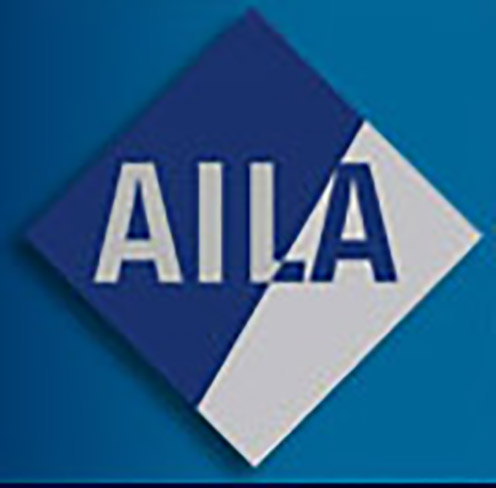
Update from the Association Internationale de Linguistique Appliquée (AILA) Representative
Fabiola Ehlers-Zavala, INTO Colorado State University
This update is to ensure that AAAL members are aware that the AILA Congress Organizing Committee has reached a decision regarding the format for the upcoming conference. In light of the pandemic, especially the situation in the Netherlands, the decision was made to hold a fully virtual meeting in 2021. This decision has already been communicated to members/expected participants and has been made available on the conference website.
Presenters should receive information by the end of May regarding how to access and navigate the conference platform, Dryfta. Any changes to titles or abstracts will need to be completed by July 10. Participants who paid a higher registration fee than what is required for virtual participation should have also received refunds.
For more specifics or to find answers to additional questions, please visit the AILA 2021 Congress website.
Introducing Ibero-American Association of Applied Linguistics (AIALA)
Update from the AIALA Co-Founders/Organizers
Laura Gurzynski-Weiss, Indiana University and Kyria Finardi, Federal University of Espirito Santo
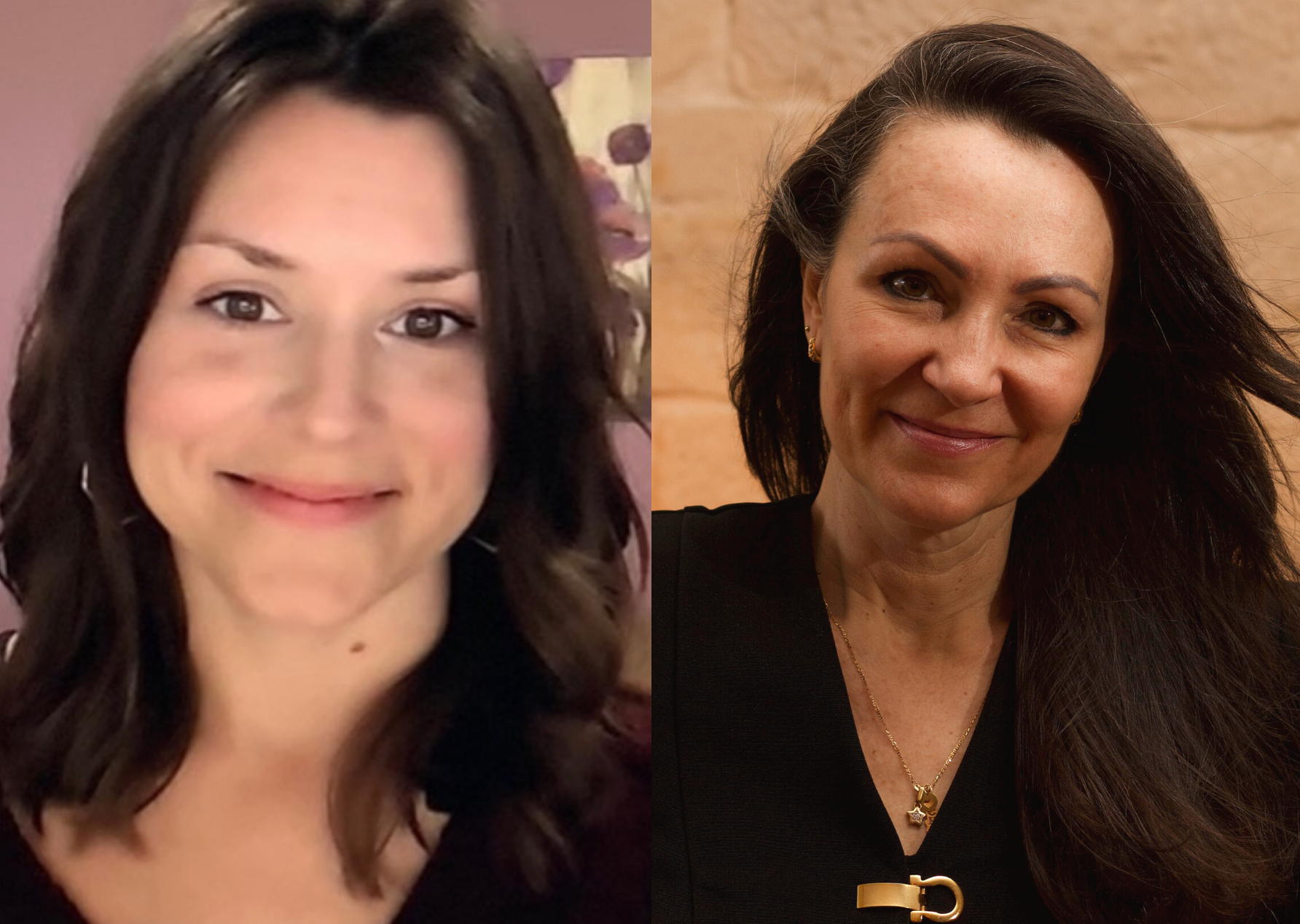
The Ibero-American Association of Applied Linguistics (AIALA, by its abbreviations in both Spanish—Asociación Iberoamericana de Lingüística Aplicada—and Portuguese—Associação Ibero-Americana de Linguística Aplicada) was created in August to better reflect the global linguistic diversity within the International Association of Applied Linguists (AILA). Current events have demonstrated the critical importance for regional/global collaboration and multilingual perspectives in all areas of science, especially in applied linguistics. In creating AIALA, we have reconceptualized AILA “regional” membership beyond physical residence/geographical location, focusing instead on linguistic bonds to promote regional languages, such as Spanish, Portuguese, and affiliated minoritized languages spoken and researched by applied linguists. AIALA is a collaboration between AAAL, AMLA (Mexico), ALAB (Brazil), and AESLA (Spain), with additional opportunities for membership by AILA members-at-large where there are no national affiliates (yet). Thus, members of AAAL are automatically members of AIALA.
In initial presentations at AAAL 2021 and the upcoming AILA World Congress, the founding team organized colloquia describing the process of creating AIALA, the events planned, ways to get involved, and our vision for this organization that will amplify Spanish, Portuguese, and Indigenous and minority languages in the region, both in terms of applied linguistics research foci and in terms of supporting applied linguists who speak and research these languages. The work in AIALA is aimed towards the common goal of demonstrating how multilingual perspectives in applied linguistics will always offer a more complete view of and service to all languages and speakers and the conviction that, by increasing the viewpoints with which we engage, the world will be more inclusive, equitable, and just. We invite you to join the conversation by visiting our website or by emailing the co-organizers.
Spanish and Portuguese language translations of the above article can be found here.
New Member Spotlight
Julie Sykes, University of Oregon Linguistics and Center for Applied Second Language Studies
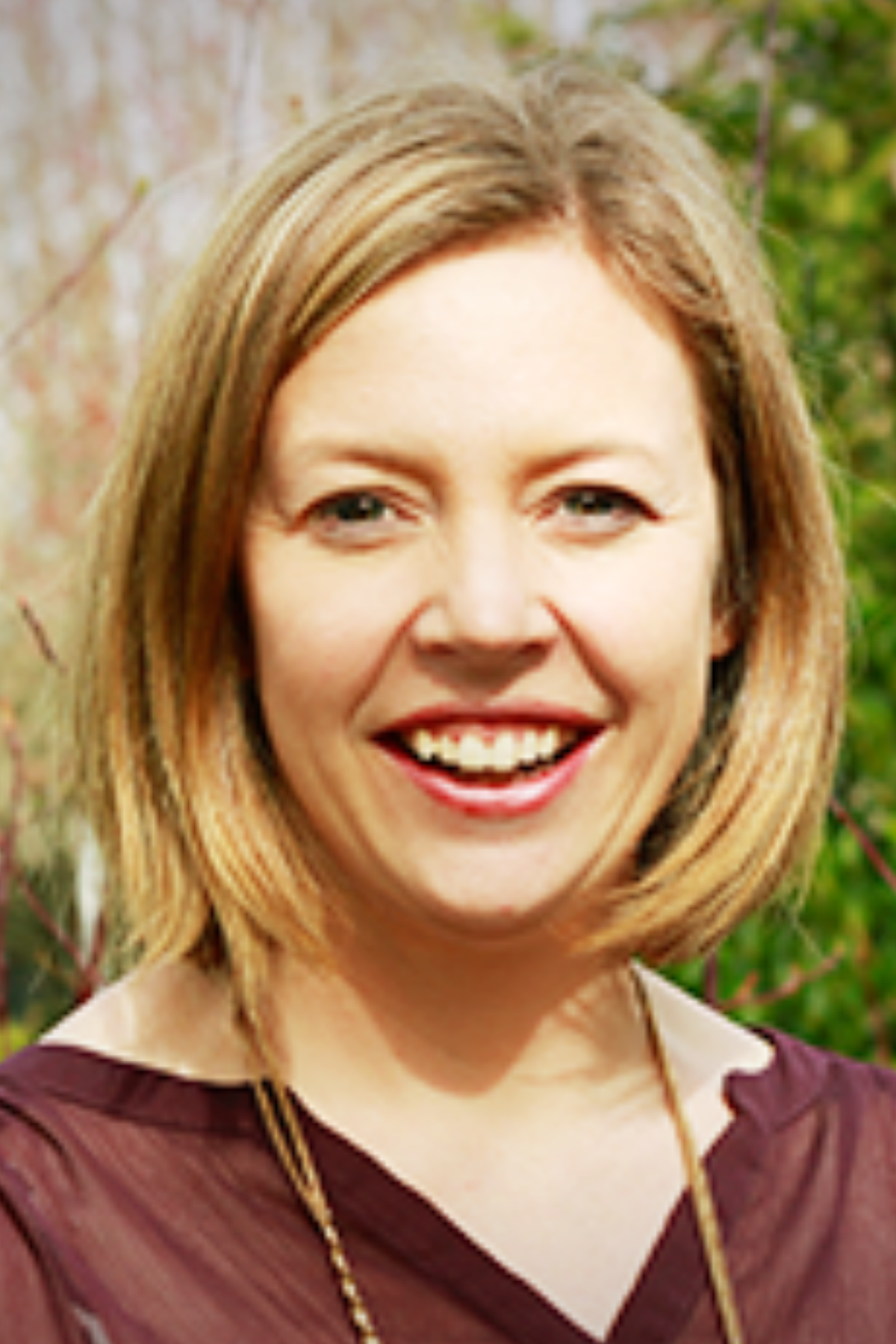
Introductory note
Dr. Julie Sykes is an incoming Member-At-Large for AAAL. She has been a member of AAAL since 2005 and has served in a variety of capacities, including as a student mentor, strand reviewer, and member of the Book Award committee. She is an Associate Professor in the Department of Linguistics and the Director of the Center for Applied Second Language Studies at the University of Oregon. She teaches classes on second language acquisition, interlanguage pragmatics, and technology in language learning and teaching.
From Dr. Julie Sykes
Language is everywhere. Whether spoken or signed, language is fundamental to humans. It has the power to shape people’s identities and experiences drastically in different ways. I am grateful to be a part of a profession that recognizes these facts and continually strives for better understanding. The diversity of approaches, strands, and research areas represented by the AAAL membership are testament to this work.
My own research efforts are focused on transformational approaches to the teaching and learning of languages and, more specifically, the teaching and learning of intercultural pragmatics (i.e., politeness, communicative functions, and patterns of interaction). With this approach, I endeavor to better understand ways we can provide language learners with meaningful and relevant intercultural insight to shape their interactions in all languages they speak. Although pragmatics is a key element of successful communicative and interactional competence, it has received relatively little research and pedagogical attention in second language education settings. From this perspective, my recent theoretical work has largely addressed a reframing and reconceptualization of current pragmatic approaches to move away from a homogeneous model of pragmatic patterning (i.e., an assumed native speaker model to which monolingual learners are compared) to a skill-based approach, which can apply to a wide range of communities (e.g., refugee resources and revitalization efforts), learning scenarios (e.g., self-study learners and non-classroom contexts), and language abilities (e.g., perception and production). Moreover, deploying this approach enables us to examine patterns of digital discourse (i.e., language patterns occurring in, or as a result of, digitally-mediated interactions, even if those occur by analog means) to better understand the pragmatics of rapidly-emerging communicative contexts. I am excited about this work because, without excluding classroom contexts, it extends our understanding of teaching and learning pragmatics beyond classrooms to include a multitude of other learning contexts as well.
Translational research is a critical component of my work where, in collaboration with my team at the Center for Applied Second Language Studies, I seek to contribute to a comprehensive understanding of best practices for both the design and implementation of innovative curricular materials for language learning. Emergent technologies are at the heart of this endeavor and can facilitate teaching and learning in ways not previously possible. One recent project I am especially excited about is the design, implementation, and evaluation of place-based, mixed-reality experiences that employ virtual reality,
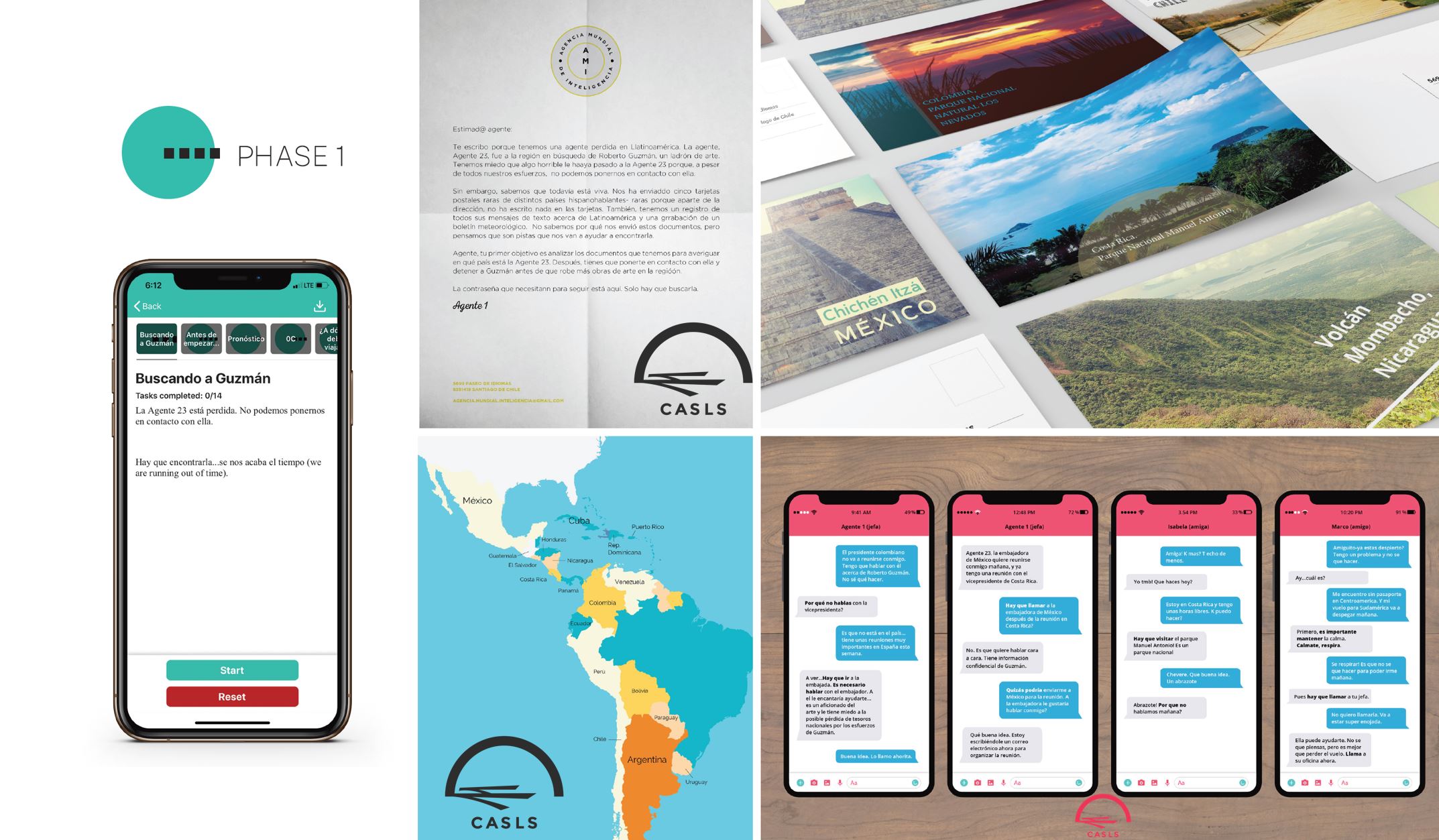
augmented reality, and analog materials for community and language exploration. Experiences we have created include
Spanish students working as secret agents to apprehend an art thief (see photo); a reporter saving language by discovering hidden stories and key rhetorical devices in Washington D.C.; and an intergalactic team who is saved through the application of key pragmatic dimensions (i.e., politeness, social distance, power, and severity) to activate power crystals in space. Each experience draws on what we know from twenty years of research on games and play, as well as locative education, to create an engaging, surprising, and meaningful learning experience. Pilot data shows promise for engaging learners (high school, university, and adult) in critical thinking, linguistic analysis, and pragmatic development.
Make Your Voice Heard: AAAL Resolutions
Updates from the AAAL Business Office
The resolution process is an important means through which AAAL members can make their voices heard on issues internal to AAAL’s governance and operations. The Resolutions Committee is charged with the responsibility of processing all resolutions proposed by the membership before they are acted upon by the general business meeting of AAAL, including those calling for amendment to the Bylaws as outlined in Article XII: Amendments. The Resolutions Committee may also originate courtesy resolutions.
Resolutions shall be of two types: courtesy and content.
- Courtesy resolutions are non-controversial resolutions. They may be in the nature of congratulations or thanks or commenting on or affirming support for an internal governance or operational matter.
- Content resolutions allow for formal comment by the membership on issues internal to AAAL governance or operations. The issues articulated in resolutions must be discussed by the Executive Committee at its first meeting following membership approval and may necessitate a change to the bylaws, standing rules, or procedures.
View the AAAL Resolutions Procedures for more information.
